Our community participated in a wide range of meaningful and inspiring events this year. From ramping up our own event planning, to traveling the world to present research, our students, staff, and faculty are making an impact wherever they land! Read on for a sampling of some of our activities.
The International Congress of Nutrition in Buenos Aires

Once every four years, nutrition researchers, scientists, and policy makers from across the globe convene in a different locale for the International Union of Nutrition Scientists (IUNS) International Congress of Nutrition (ICN).
This year marked the 21st session, held in Buenos Aires, Argentina in October 2017. The chosen theme, “From Sciences to Nutrition Security” was particularly relevant in an era in which we are seeing many developing and ongoing global nutrition security crises due in no small part to the effects of climate change.
The Friedman School was well represented at the conference, including research, posters, and presentations from a wide cross-section of our projects, faculty, and students. We highlighted six Friedman-based projects in our preview of what conference-goers could expect to see there.
Creating a Brighter World

On November 4, 2017, Tufts University launched a $1.5 billion campaign that aims to strengthen teaching and research, support a distinctive culture of collaboration and innovation, and advance the university’s capacity to translate brilliant ideas into practical solutions for global problems.
More than 400 alumni and friends celebrated the start of the public phase of Brighter World: The Campaign for Tufts at the Museum of Fine Arts in Boston. Commitments leading up to the launch have contributed more than $566 million, helping bolster Tufts’ longstanding research efforts and providing more than $148 million to support financial aid. The comprehensive campaign, the largest in the university’s history, will accelerate Tufts’ “upward trajectory as a student-centered research university that fosters a global perspective and nurtures leadership,” said President Anthony Monaco.
“Tufts continues to attract among the very best and brightest scholars and students, united by a passion for learning and discovery,” he said. “Our graduates go out into the world with the knowledge and inspiration to make a positive difference. With the support of alumni and others, the Brighter World campaign will enable our remarkable faculty and students to fulfill their aspirations and rise to meet the significant challenges of our time.
A Community Food Systems Conference
Winona LaDuke, an environmentalist, political activist, author, and farmer, wants to “make American great again.” Her idea of when America was great? “When there were 8,000 varieties of corn,” she said.
LaDuke was the keynote speaker at the Community Food Systems Conference held December 5-7 in Boston. Almost 600 people attended the conference, organized by the New Entry Sustainable Farming Project at Tufts, to delve into issues surrounding food security, social justice, and sustainable agriculture. They came to talk about sustainable supply chains, the farm bill, farm-to-school programs, farm workers’ rights, access to organic foods, and urban food deserts.
LaDuke, a member of the Anishinaabe nation, is a long-time advocate for native economic and environmental development. She twice ran for vice president on the Green Party ticket with Ralph Nader. In recent years, she has spent most of her time fighting oil pipeline proposals in Minnesota.
But at this conference, she spoke as a farmer and food advocate. “You are the people who are going to feed us all,” LaDuke told the crowd. And that, she said, will only happen if we stop pillaging our natural resources, turn away from fossil fuels, and commit to preserving variety in the crops we grow.
Treating Food As Medicine: Capitol Hill Working Group is Launched
With research showing that a healthy diet is often the best prescription for preventing many chronic illnesses, Dariush Mozaffarian, dean of the Friedman School, went to Capitol Hill in January of 2018. He was there to support the launch of a Food Is Medicine Working Group within Congress’s House Hunger Caucus, which will explore policies to alleviate hunger and the burden it places on America’s health and economy.
“We plan to work together with our colleagues to elevate this Food Is Medicine conversation and to promote the need to address hunger as the health issue that it is,” said Rep. Jim McGovern (D-Massachusetts), who organized the group. “My hope for this working group is that we are able to explore our nation’s anti-hunger safety net to discover ways to make it even better.”
Food Aid Quality Review Shares Study Results in D.C.
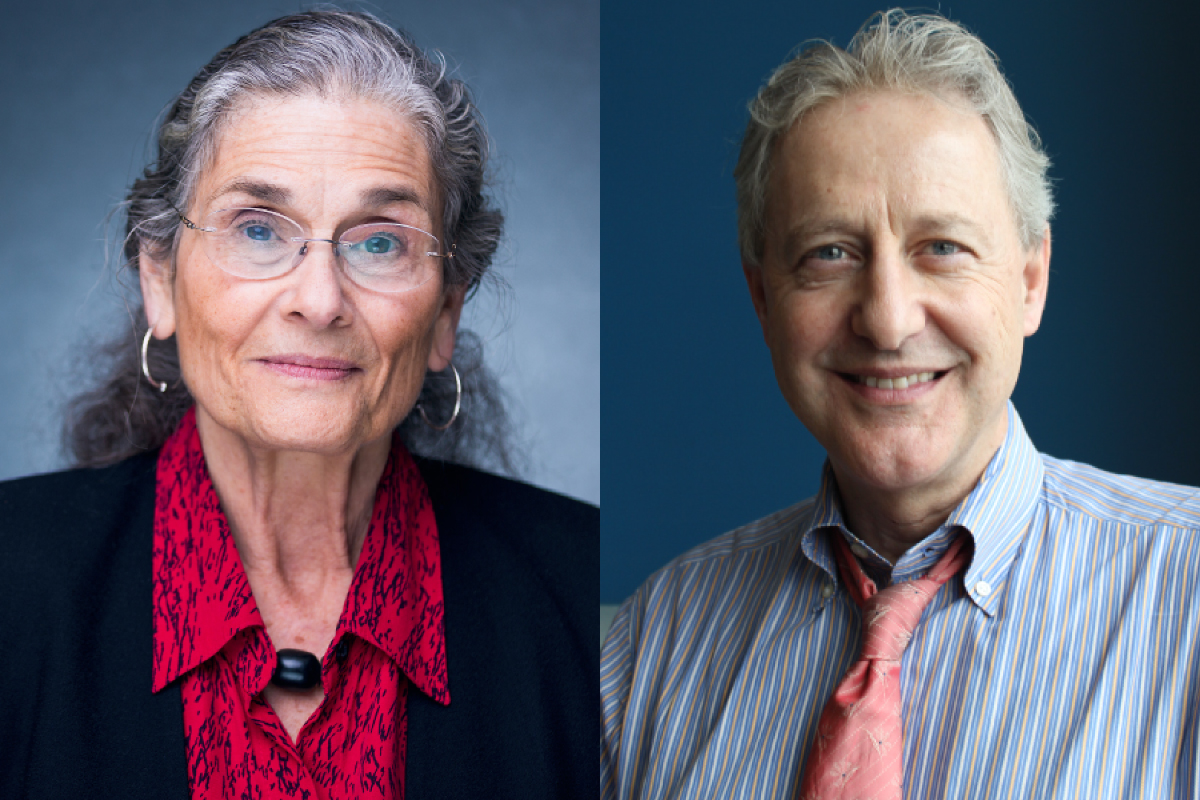
On January 31st, 2018, Food Aid Quality Review Principal Investigators Patrick Webb and Bea Rogers traveled to Washington D.C. to present "Evidence on the Effectiveness and Cost-Effectiveness of Supplementary Foods in the Prevention of Malnutrition in Children: Research Findings for the Food Aid Quality Review (FAQR) III Study in Burkina Faso."
The event was a dissemination of research results on the effectiveness and cost-effectiveness of four supplementary foods in the prevention of stunting and wasting in children 6 to 23 months in a supplementary feeding program in Sanmantenga Province, Burkina Faso. The study findings provided operationally relevant recommendations for those working in DC seeking to program food aid more effectively.
A Momentous Graduation in Malawi
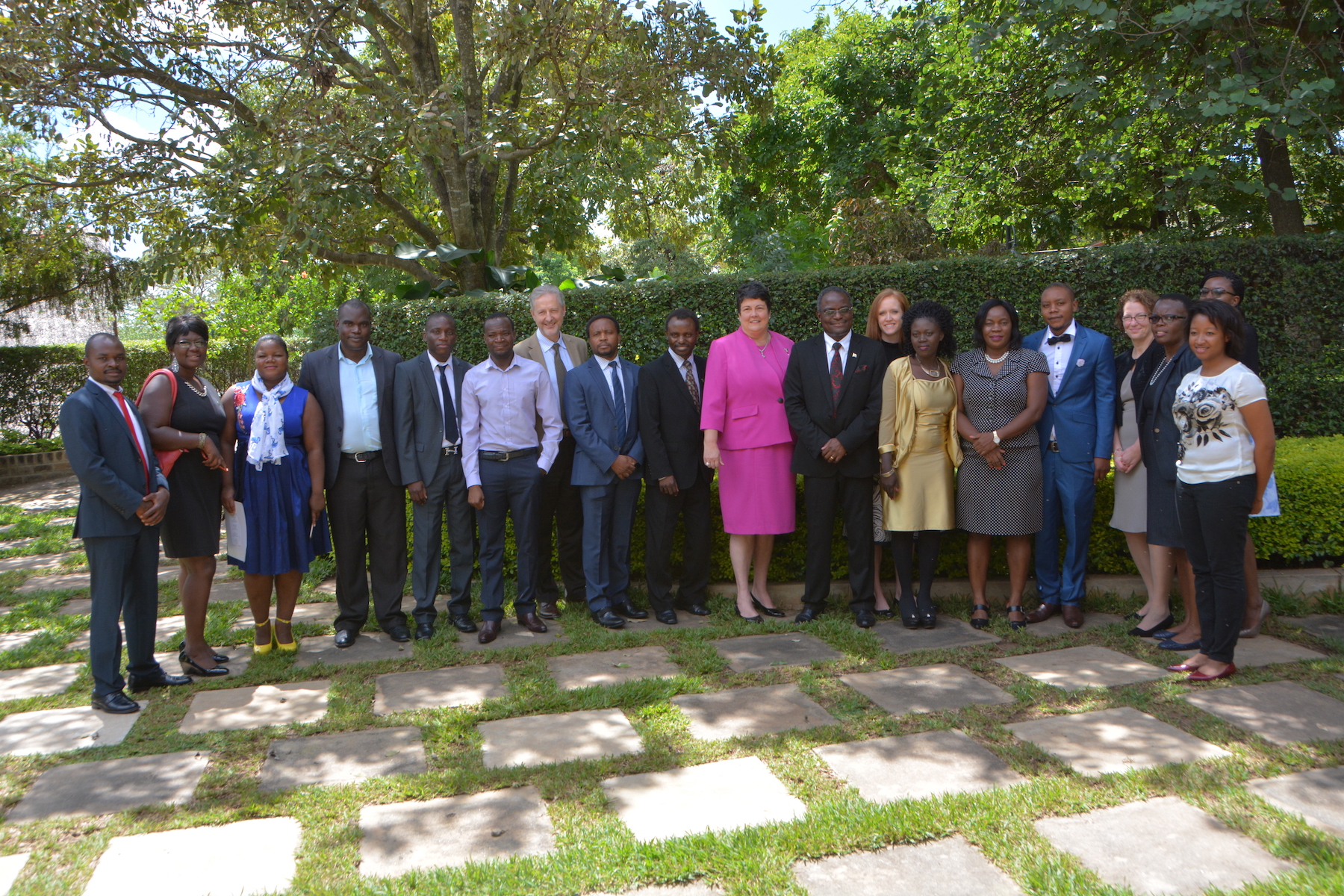
In 2016, the Friedman School-based USAID Nutrition Lab for Innovation, partnered with the Malawi College of Medicine and the Lilongwe University of Agriculture & Natural Resources (LUANAR) to developed the country’s first clinical dietetics program. In February of 2018, five dietitians were the first to graduate from the 20-month rigorous training program.
“Completion of studies represents the culmination of over a decade of work by the Malawi Government to improve the health of its citizens through integrated nutrition efforts that place special emphasis on vulnerable populations,” said The United States Ambassador to Malawi, Virginia Palmer.
Palmer said the first cohort would work with the government to identify nutrition-based gaps that need to be addressed such as stunting, underweight children and hypertension, an ailment that can be solved through basic dietary changes.
Global Food+ Symposium

In February of this year, the Friedman School hosted the second annual Global Food+ Symposium. Previously hosted at Harvard University, the 2018 iteration brought 23 researchers from Boston University, MIT, Harvard, and Tufts to share their research in seven-minute lightning talks on topics ranging from microbiology to nutrition to theology. Friedman AFE Student Sam Jones attended the event and wrote a comprehensive review for our student newspaper, the Friedman Sprout. You can watch all of the presentations from the event on our Vimeo page.
21 Days of Racial Equity Habit Building

As part of their commitment to racial equity and food justice, the Food Solutions New England (FSNE) network is dedicated to normalizing conversations about the role of racism in shaping our food systems (local, regional, national and global).
Facilitated by Friedman School’s Social Justice, Inclusion and Diversity Training Subcommittee, the Friedman School community accepted FSNE’s 21-Day Racial Equity Habit Building Challenge this year to come together to identify and address the different ways that bias, prejudice, privilege, and oppression show up in our work and lives. The challenge ran from April 2nd to 22nd, and featured a series of lunch discussions groups centered around prompts, accompanied by personal reading and journaling assignments.
The Challenge was originally developed by Dr. Eddie Moore, Jr. and Debby Irving and has been adapted by Food Solutions New England with support from the Interaction Institute for Social Change. The challenge is designed to create dedicated time and space to build more effective social justice habits, particularly those dealing with issues of race, power, privilege, and leadership.
The SJID Training committee will encourage School-wide participation again in April 2019. Learn more and access resources that support the challenge.
11th Annual Student Research Conference
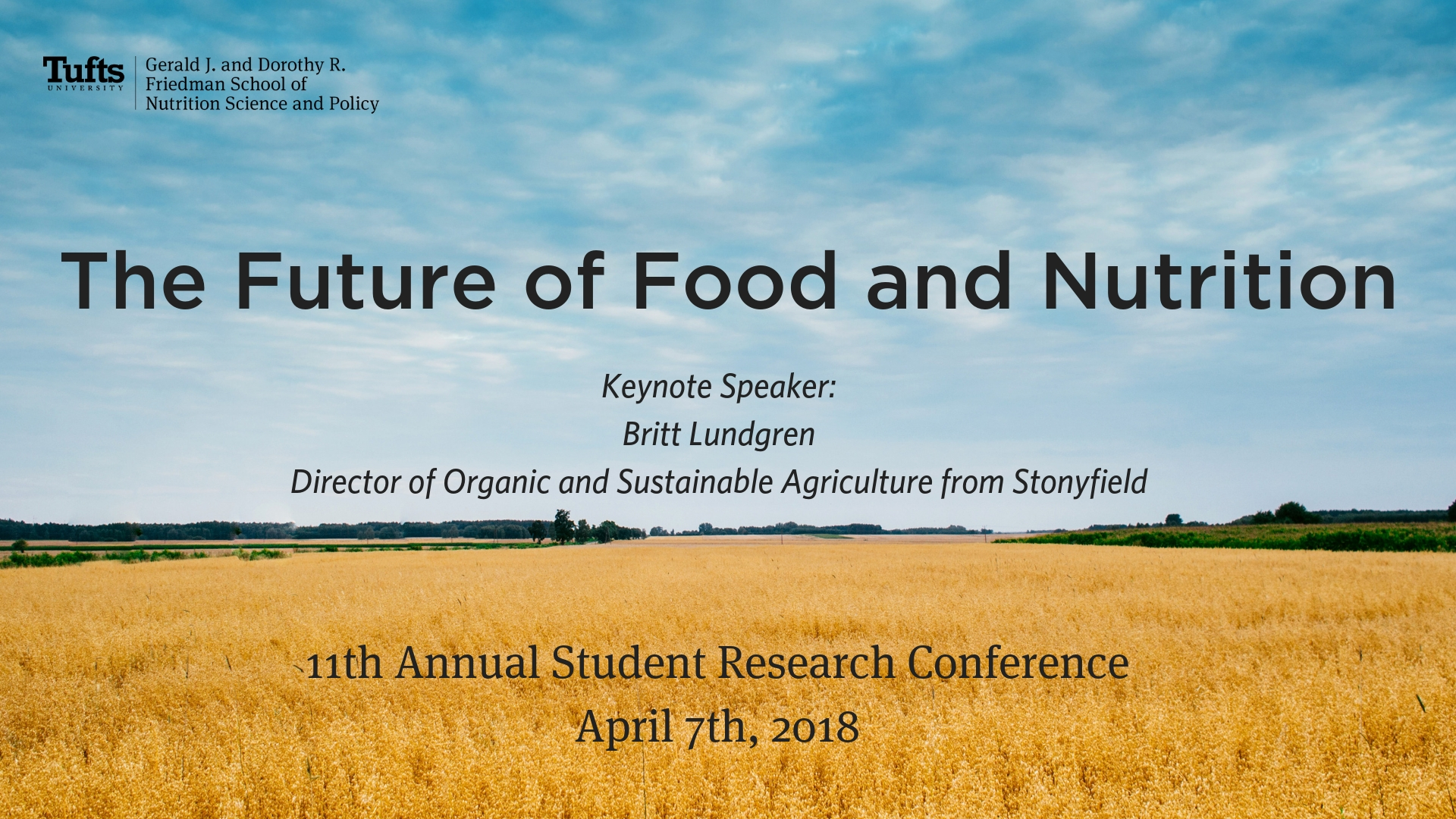
The Future of Food and Nutrition Graduate Student Research Conference, hosted annually by the Friedman School of Nutrition Science and Policy, provides a unique venue for graduate students to present original research related to food and nutrition. Historically, more than 200 attendees from over 50 different institutions have come together each year to hear students present research from diverse fields ranging from food anthropology to nutritional epidemiology.
Each year, both presenters and attendees gain valuable professional experience discussing novel, multidisciplinary research. The conference also provides a great opportunity for networking with fellow students and future colleagues – the next generations of leaders in the field.
Britt Lundgren, the director of organic and sustainable agriculture at Stonyfield Farm and Friedman alumna, kicked off the April 2018 conference with her keynote address that emphasized the importance of food and nutrition research. “I think this represents one of the toughest sustainably issues we face,” she explained when talking about the environmental impact of food production, “because the stakes are so high. We’re talking about how we feed ourselves sustainably, how we feed future generations sustainably … which ultimately impacts quality of life.”
Tufts Food and Nutrition Entrepreneurship Competition
Friedman School staff member Robin Shrestha, N15, and teammate Sapana Adhikari of Smartbakery won first place in the first Tufts Food and Nutrition Entrepreneurship Competition on April 12, 2018.
Shrestha, a project manager at the Friedman School’s Nutrition Innovation Lab, and Adhikari won $15,000 for their proposal to establish a bakery that would sell cheap, healthy lentil curry in fortified bread bowls at a school in a rural village in their native Nepal.
“We’re extremely grateful that everyone thought it was a good idea. To have this support really means a lot to us,” said Shrestha. “It’s such a great opportunity and it’s wonderful that they’re encouraging entrepreneurship here at Friedman.”
Twenty-four teams submitted their business ideas for the competition, which was sponsored by the Friedman School in conjunction with the Tufts Gordon Institute but open to the entire Tufts University community. The seven finalists who presented gave five-minute pitches and answered questions from the judges (and in a few cases, from audience members) for ten minutes.
The 20th Annual Gershoff Symposium
This year marked the 20th Annual Stanley N. Gershoff Symposium at the Friedman School of Nutrition Science and Policy. This year's symposium topic was "Ambiguity and Perception in Food Trends: Are We All Talking about the Same Thing?" The event featured a terrific panel of speakers including a keynote speech from Friedman Alumna and Executive Director of Sustainability & Professor of Public Policy at George Washington University, Kathleen Merrigan, Ph.D.
After the event, student Micaela Karlsen received the 2018 Stanley N. Gershoff, Simon J. Simonian and Arpi A. Simonian Prize for Research Excellence in Nutrition Science and Policy for her PhD research on “Diet Quality and Predictors of Long-Term Adherence to Popular Diets: Using Data from the ADAPT Survey.”
The Alumni Awards were also given out after the event with the following alums receiving the honor this year:
- Leadership and Expertise Award: Punam Ohri-Vachaspati, N91, NG94
- Nutrition Impact Award: Elanor Starmer, F07, N07
- Leah Horowitz Humanitarian Award: Cristiana Falcone Sorrell, F01, N01
Friedman School At ASN 2018
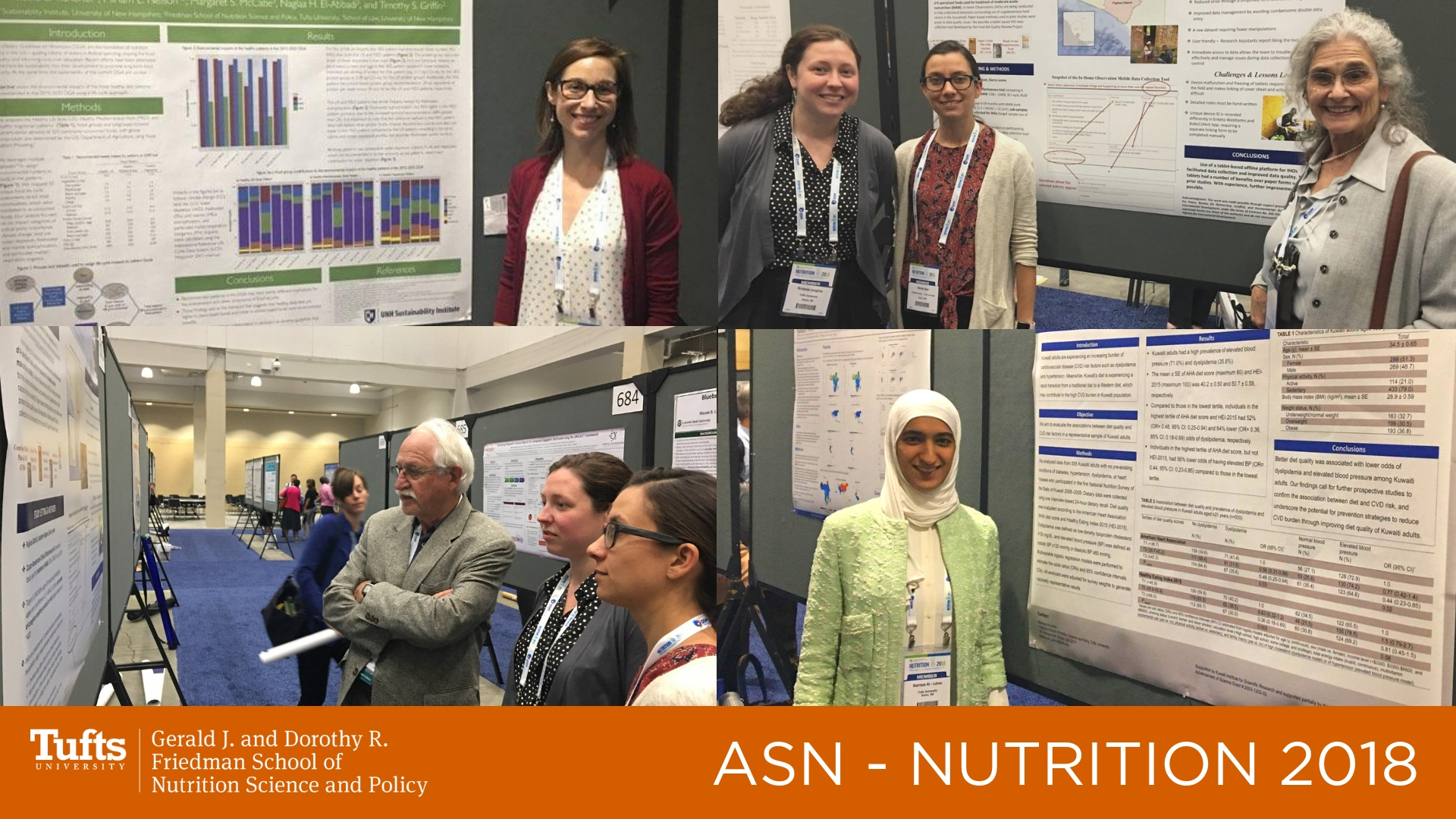
The ASN award-winning Friedman School community turned out in full force to represent at this year's American Society for Nutrition annual meeting, Nutrition 2018.
Can food allergies be prevented? Does what we eat affect our susceptibility to diseases like dementia or cancer? Why does the same diet affect different people differently? How can we produce food more sustainably in the future? These were just a few of the fascinating questions discussed at this year's meeting, held June 9-12, 2018 at the Hynes Convention Center in Boston.
HNRCA scientists and Friedman School staff, faculty, and students presented their research findings and participated in panel discussions addressing hot topics in clinical practice and policy. We captured a full rundown of everyone at Tufts University who presented. You can view the schedule and more presentation details here.
Food Assistance for Nutrition Evidence Summit
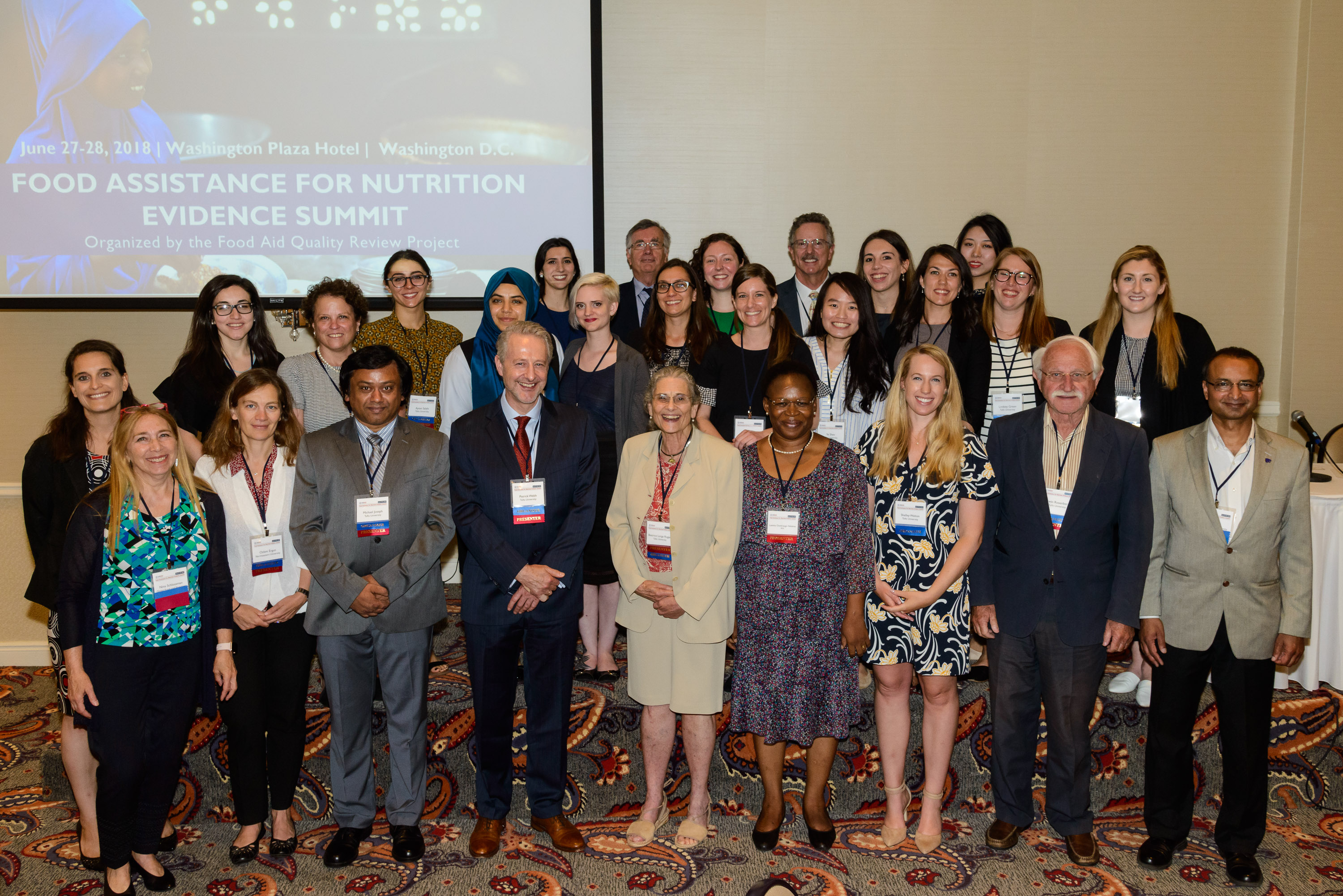
Over 250 researchers, policymakers, implementing partners, donors and industry representatives attended this 2-day summit, convened in June of 2018 in Washington DC by the Food Aid Quality Review (FAQR) and USAID's Office of Food For Peace (FFP). Attendees came together to share and discuss their work and its implications on food aid policies and programs.
Through a series of presentations, panels, roundtable discussions and displays, the Summit provided a review of the current state of research on food assistance for nutrition, facilitated dialogue on key policy and program-relevant findings, and identified priority domains for future investments. By providing evidence-based recommendations to the food assistance community, the convening partners aimed to drive forward future investment in food assistance for nutrition research.
Rep. Jim McGovern was a keynote speaker at the event; among a diverse range of other presenters, including leading researchers in the field of food aid quality from all over the world.
